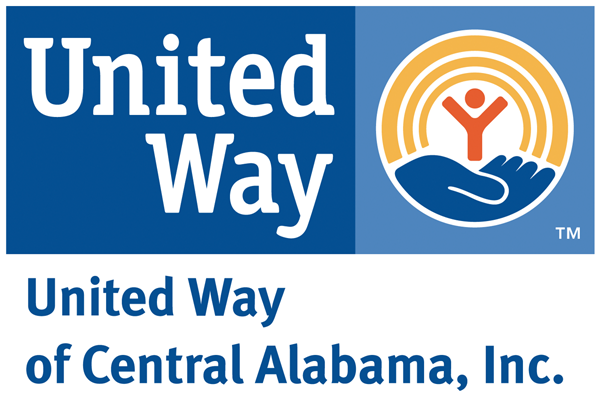 Passage of WIOA Brings Opportunities for Independent Living
Passage of WIOA Brings Opportunities for Independent Living
The Rehabilitation Act of 1973, as amended, established a network of Centers for Independent Living (CILs). CILs are consumer-controlled, community-based, cross-disability, nonresidential, nonprofit agencies that are operated in local communities by individuals with disabilities. CILs provide an array of IL services that are designed to enhance independence and productivity of individuals with significant disabilities, and to promote their full inclusion and integration into the mainstream of American society. IL has grown to 354 federally funded centers for independent living since its creation. CIL’s are located in Birmingham, Montgomery, and Mobile.
In 1992 Reauthorization of the Rehabilitation Act brought a number of changes to insure the continued growth of independent living. Federal law requires that reauthorization occurs every 5 years, something that had not taken place since the late 90’s. Reauthorization had been long overdue. In the Spring of 2014 naysayers had pronounced reauthorization dead on arrival. They were wrong.
With the President’s signing of the Workforce Innovation and Opportunities Act of 2014 (WIAO), Independent Living Programs will begin the transition to the Administration for Community Living (ACL) at The Department of Health and Human Services, creating the Independent Living Administration. Creation of the Independent Living Administration has been one of the National Council on Independent Living’s top priorities. Independent Living will join the Administration on Intellectual and Developmental Disabilities and the Administration on Aging at ACL. The move will complete a program of services designed to increase community supports focused on people with disabilities and older Americans throughout their life.
WIOA also brings other significant changes for CIL’s and State Independent Living Councils (SILC’s). CIL’s will now be required to provide a new fifth core service–Transition. Transition services include transition from institutions to community, prevention of institutional placement, and transition services for post-secondary youth. CIL’s are now the only entities specified in federal law to provide nursing home transition, a service that many CIL’s, including Disability Right and Resources, had already been providing.
Reauthorization clarifies the role of the SILC’s, and expands the role of CIL’s in the development and signing of the State Plan for Independent Living (SPIL’s). SILC’s are now permitted to conduct systems advocacy and resource development, activities that had been prohibited, due to interpretations by the Rehabilitation Services Administration. The SPIL is a document describing activities to achieve independent living objectives in a state, and must be approved by the federal government every 3 years. It outlines the network of centers for independent living and the allocation of other resources. In the past, the chair of the SILC and the head of the Designated State Unit (VR) signed off on the SPIL. Now the SPIL must be jointly developed by the SILC and CILs, and signed off by the chair of the SILC, a majority of CILs, and the head of the Designated State Entity (formerly the Designated State Unit).
These changes have the potential of increasing collaboration among partners, increasing support for the network of centers for independent living, and increasing the autonomy of the State Independent Living Councils in Alabama and throughout the United States.
Calendar of Events
February 10 & 25 Peer Support Meeting: Budgeting/Money Management*
February 26 ADA Anniversary Planning Meeting 2:00 p.m., Birmingham
March 10 & 25 Peer Support Meeting: Turning Problems into Opportunities*
March 20 State Independent Living Council Meeting, Montgomery
April 3 Closed in Observance of Good Friday
*Peer Support Meetings at Birmingham Office 10:00 a.m. For more information about peer support meetings, e-mail josh.whitmire@drradvocates.org or call 205-815-6152
Many working people in Alabama don’t earn enough to keep up with the costs of having a home. In 2012, the Alabama legislature created the Alabama Housing Trust Fund to address the shortage of rental and homeownership opportunities affordable to working families. The legislation creating the Trust Fund did not include funding. The legislation did set-up a way to provide funding later when the economy is healthier.
The Low Income Housing Coalition of Alabama (LICHA), a statewide advocacy group promoting the development of housing for low income people, will be leading the fight to gain funding in the upcoming legislative session. Alabama needs of over 90,000 affordable homes for seniors on fixed incomes, persons with disabilities and low-wage workers.
All housing units must satisfy HUD’s minimum housing standards and comply with Americans with Disabilities Act. Applicants for homeownership must fulfill requirements of Alabama Habitat for Humanity’s homeownership program. The 2015 Legislative Session offers the best opportunity to secure a dedicated revenue stream for the Alabama Housing Trust Fund. Supporters will have opportunities to express their support for the legislation as it moves through the House and Senate in the 2015 legislative session. For more information visit LICHA’s website.
Meet Chris Jones
My name’s Chris Jones, I’m a Homewood native who spent the last 13 years in Tennessee and Mississippi before moving back to town to become Disability Rights and Resources’ new Volunteer Home Modification Coordinator. I am a graduate of the University of Memphis and consider Memphis my ‘other’ hometown; so much so that I never thought I would leave that city. In the end, however, good scholarships and ridiculously low cost of living lured me 3 hours south to Jackson, Mississippi for graduate school. It was there that I met a pretty little songbird from West Palm Beach, Florida named Valerie Tate who became my wife this past May 31st. Professionally, I’ve spent the last ten years working for Presbyterian churches. Personally, I’m a fiercely proud Memphis Tiger (with some love thrown in for the Auburn Tigers as well), an obsessive Bruce Springsteen fan, a music teacher, and was voted by readers of the Jackson Free Press to be the 2nd Best Curmudgeon in Jackson, Mississippi for 2012 (that’s not a joke). Independent living has been important to me my whole life as I have watched my mother deal with the challenges caused by hip dysplasia that has limited her mobility her entire life. I am thrilled to be back home in Birmingham and part of the Disability Rights and Resources team!
ABLE Act Signed Into Law





